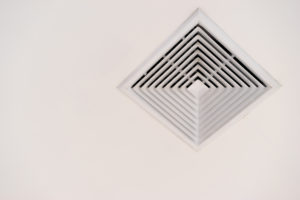 Heat ducts in a house are usually installed in the floor or the ceiling. But which one is preferable? Both locations have positives and negatives, depending on a number of variables.
Heat ducts in a house are usually installed in the floor or the ceiling. But which one is preferable? Both locations have positives and negatives, depending on a number of variables.
Note: No matter where you place the ducts, fundamental facts of duct design always apply: The size of ductwork must be properly calculated to accommodate the required airflow volume and duct spans should be routed with as few sharp bends as possible.
Floor Ducts for Heating
According to the natural laws of convection, heated air entering through floor ducts rises. This disperses warmth evenly throughout the room from floor to ceiling. Heat entering through ceiling ducts, however, naturally tends to accumulate at the ceiling, warming the room from top to bottom more slowly than floor ducts. In climates where heating is the predominant HVAC function, floor ducts are usually preferable.
Ceiling Ducts for Cooling
The physics reverse when it comes to air conditioning. Because cool air naturally sinks, ceiling ducts are preferable where air conditioning takes precedence. Cool air entering through ceiling ducts quickly descends to the lower portion of the room where people are located. Comfort control is more immediate and continuous. Cool air supplied through floor ducts, conversely, tends to settle near the floor until airflow volume fills the entirely space sufficiently to lower the temperature.
Heat Loss and Gain
- Ductwork serving ceiling ducts is usually exposed to attic temperature extremes in both winter and summer. In winter, heat loss from attic ducts may affect furnace warmth while heat gain may raise the temperature of A/C airflow in summer.
- Ductwork serving floor ducts usually passes through the basement or crawlspace. Duct heat loss and gain is usually less than the attic.
- If a basement is present, the furnace is usually installed there. Spans of ductwork from a basement furnace to floor ducts are more direct and shorter versus ceiling ducts. Shorter ducts are generally associated with better heating performance and efficiency.
Contact the professionals at Hartman Brothers for experienced advice about locating heat ducts in your home.
